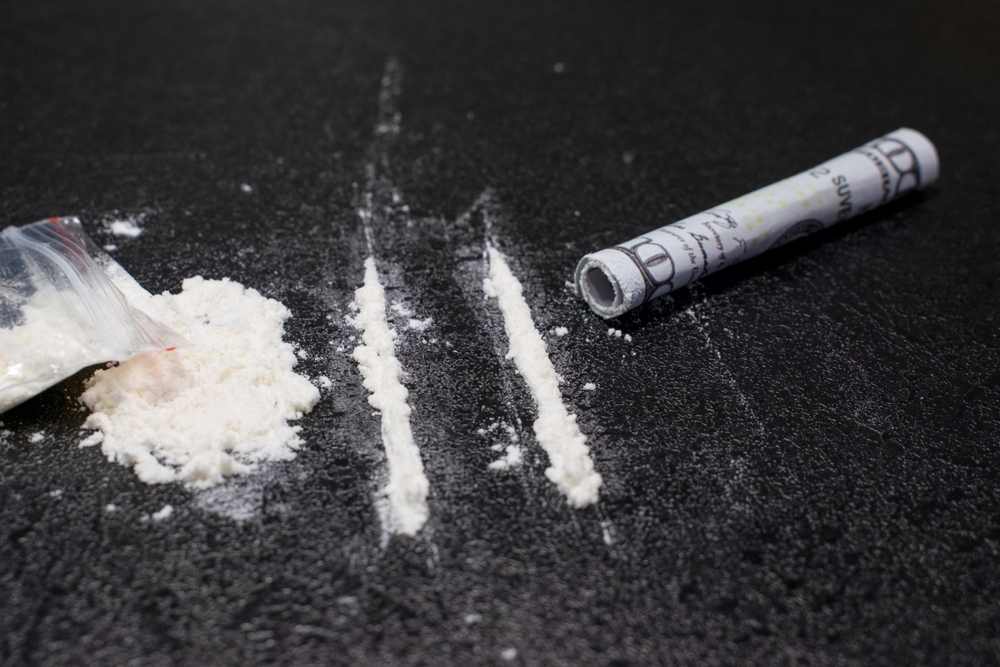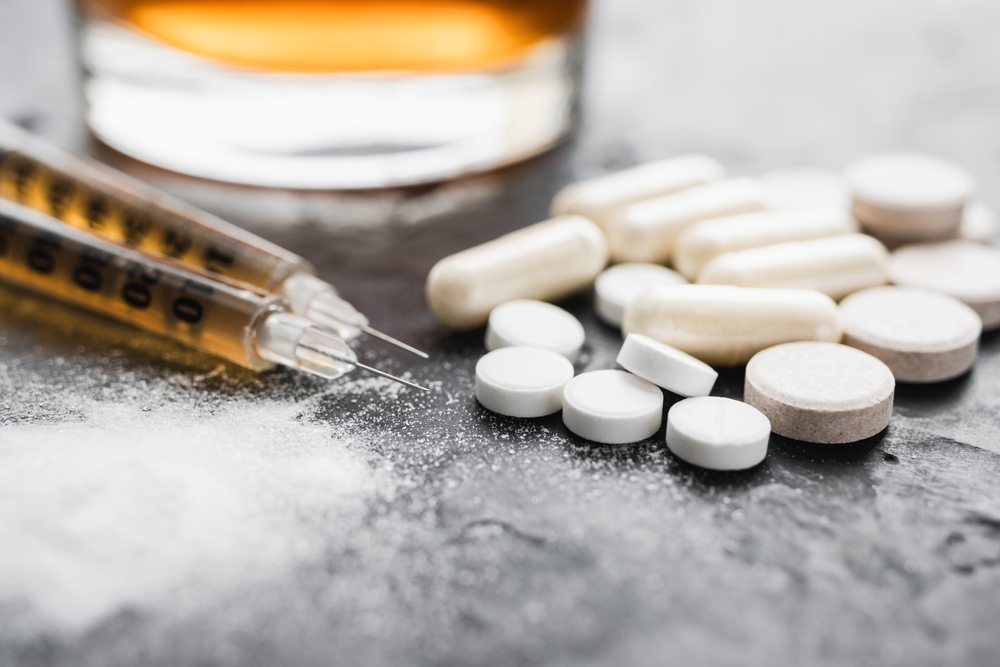Last Updated:
July 21st, 2025
Heroin Addiction | Symptoms, Effects and Causes
What is heroin?
Heroin is a highly addictive opioid derived from morphine, a natural compound found in opium poppy plants. It typically appears as a white or brown powder or a sticky black substance known as black tar heroin. Known for its intense euphoric effects, heroin poses a high risk of addiction and devastating consequences for users.
In the UK, heroin is a Class A drug, with strict legal penalties for possession, production or distribution. Despite these laws, its addictive nature continues to make heroin a major public health concern.

Is heroin addictive?
Heroin is one of the most addictive drugs because of how it impacts the brain’s reward system. After entering the body, heroin converts rapidly into morphine, which binds to opioid receptors responsible for regulating pain and pleasure. This action triggers a surge of dopamine, flooding the brain with feelings of intense relaxation and relief from physical or emotional discomfort.
The problem lies in how quickly the brain becomes dependent on heroin to produce these effects. As tolerance builds, users need increasingly larger amounts of the drug to feel the same relief. If heroin use stops, the body reacts with intense withdrawal symptoms like restlessness, muscle pain and severe anxiety, driving users back into the cycle of addiction.
The negative impact of heroin addiction
Heroin addiction doesn’t just affect the body—it disrupts every area of life, causing emotional, social and financial difficulties that intensify as addiction progresses. Its effects can be devastating, creating a cycle that becomes harder to escape the longer it continues.
Prolonged use can cause significant damage, including:
- Liver failure
- Kidney failure
- Collapsed veins from injecting
- Dangerous skin infections
- Diseases from sharing needles with others
- The heightened risk of overdose
What are the signs of heroin addiction?
Recognising the signs of heroin addiction early can make all the difference. Knowing what to look out for could be the first step toward seeking help, whether you are concerned about yourself or someone close to you.
Physical signs
- Pinpoint pupils: Heroin causes the pupils to become unusually small, making this a common physical indicator.
- Drowsiness or “nodding off”: Users may appear extremely sleepy or fall asleep suddenly due to heroin’s sedative effects.
- Weight loss: Poor appetite and neglect of personal care can result in noticeable weight loss.
- Frequent sniffing or runny nose: These symptoms are common in people who snort heroin.
- Injection marks or scars: Needle marks, often referred to as track marks, may appear on arms or other injection sites.
Psychological signs
- Mood swings: Sudden changes from calmness to irritability can indicate heroin use.
- Anxiety and depression: Heroin’s interference with emotional regulation often causes severe mental health struggles.
- Memory problems: Difficulty concentrating or recalling recent events can occur due to heroin’s effect on the brain.
- Confusion or disorientation: People may seem mentally distant or struggle to stay focused after using heroin.
- Apathy or emotional numbness: Individuals may lose interest in activities they once enjoyed and appear emotionally flat or indifferent.
Behavioural signs
- Secrecy and lying: Users may hide their drug use, lying about where they’ve been or how they’ve spent money.
- Neglecting responsibilities: Everyday obligations like work, school or family duties may be ignored as heroin takes priority.
- Isolating from loved ones: Withdrawal from family and friends can occur as heroin use dominates their lives.
- Loss of interest in hobbies: Activities that were once enjoyable may be abandoned as the addiction consumes more time and energy.
- Financial issues: As heroin use becomes a priority, individuals may struggle to afford the drug, leading to unexplained financial issues.
Do I have a heroin addiction?
It can be difficult to recognise addiction in yourself. Heroin’s grip is deceptive, often making users believe they are still in control even when their lives are falling apart. While those around you might notice the signs, denial can keep you trapped in the cycle. Being honest with yourself is the first step toward recovery.
While we don’t condone heroin use, asking yourself the following questions could help you understand whether you might have an addiction:
- Do you rely on heroin to feel normal or function throughout the day?
- Have you tried to stop using heroin but found yourself unable to?
- Do you experience withdrawal symptoms like restlessness, anxiety or nausea when not using?
- Has your heroin use affected your relationships, work or personal life?
- Do you spend much of your time thinking about, obtaining or using heroin?
- Have you needed more heroin over time to feel the same effects?

If you answered “yes” to any of these questions, reaching out for professional help could be your best decision. Recognising there’s a problem is a powerful first step toward reclaiming your life.
Where can I get help for heroin addiction?
Help is available for heroin addiction, no matter how hopeless the situation may feel. Seeking professional support can provide the tools needed to overcome heroin’s grip and begin a healthier life. Below, we take a brief look at how heroin addiction is usually treated in rehab centres:
- Detox: The first step in recovery is often detox, where heroin is cleared from the body under medical supervision. This process can be challenging, but experienced professionals can manage withdrawal symptoms safely and supportively.
- Therapy: Therapy plays a crucial role in addiction treatment. Counselling approaches such as cognitive behavioural therapy (CBT), one-to-one sessions and group support help individuals explore the underlying causes of addiction.
- Aftercare: Aftercare services provide ongoing support through regular check-ins, continued therapy and access to support groups, reducing the risk of relapse.
Take the first step
Heroin addiction can be overwhelming, but recovery is possible. Reaching out to healthcare providers or rehabilitation centres could be the first step toward a healthier, drug-free future. Don’t wait; seek support today and take back control of your life.
Our compassionate team are ready and available to take your call, and guide you towards lasting the lasting addiction recovery you deserve.

